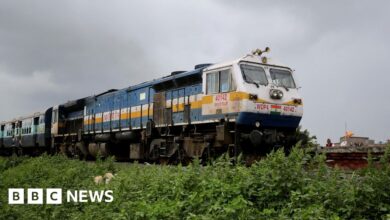Dreams of change in a country still in shock
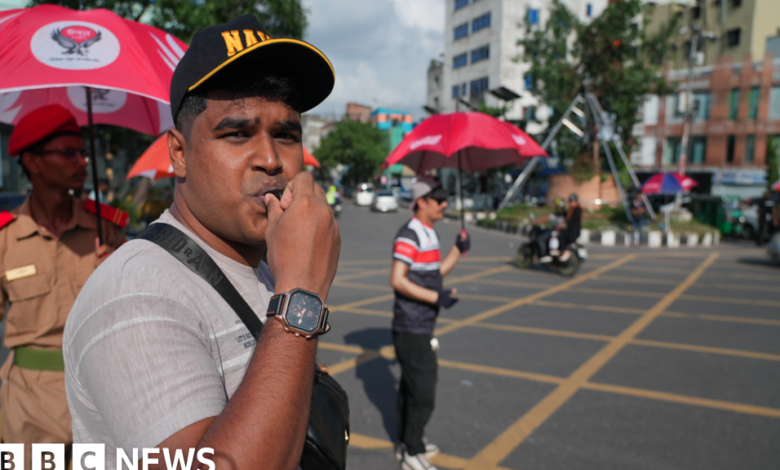
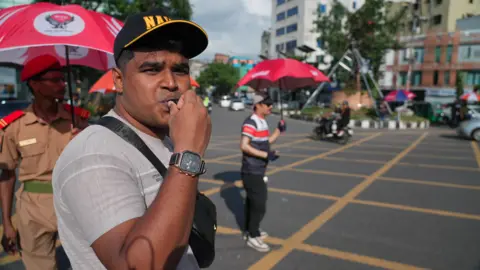 BBC
BBCIn Dhaka, students took to the streets to regulate traffic and maintain order while police went on strike after a popular uprising toppled Prime Minister Sheikh Hasina.
Police, usually highly visible, are now absent from the usually crowded and noisy streets of the Bangladeshi capital.
It appears that only students and some paramilitary forces are trying to maintain law and order, after weeks of unrest that have left hundreds dead. An interim government has been promised, but has yet to take office.
Police now fear for their safety after the deadly crackdown that has sparked widespread anger has failed to quell anti-government protests that began over civil service job quotas last month.
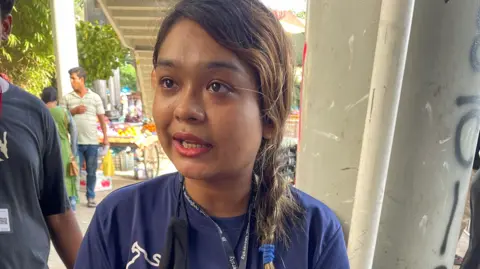
Things were calmer two days after Ms Hasina fled to India, but there have been continued reports of looting and sporadic violence during her time out of power.
Many Bangladeshis, especially young people, hope the country is at a turning point.
“I want freedom of speech. I want a country without corruption. I want people to have the right to protest,” Noorjahan Mily, 21, an Open University student, told the BBC.
“I am not sure where the country is going, because the government has changed. But whether discrimination is still there or not, I am just happy that their demands are being met.”
The country is now trying to come to terms with the shock of what has just happened, as power has been stripped from the hands of the country’s long-time ruler.
More than 400 people have been killed in the recent riots, mostly civilians shot by security forces but also some police officers. It is the bloodiest incident since the country’s war of independence in 1971.
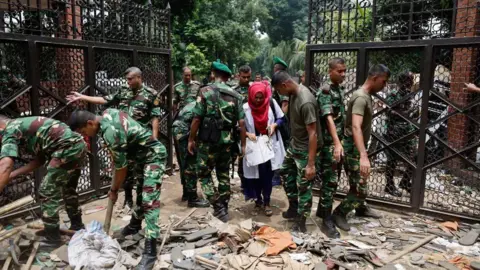 Reuters
ReutersAt the airport, a staff member handed me my luggage and said that the situation was bad and that the government had used too much force.
Outside the airport, students wearing orange reflective vests are directing traffic.
“There are no police here, just students,” the driver said. “There is no government, the students are providing 100% security.”
He agreed with the students and said they had done a good job.
As we drove away, a group of students were placing plastic cones to control traffic.
“I am here to protect my brothers and help solve the traffic problem. From the beginning, I joined the quota movement, which later became a big movement,” Julkernayeem Rahat, a business administration student at the University of Asia and the Pacific, told the BBC.
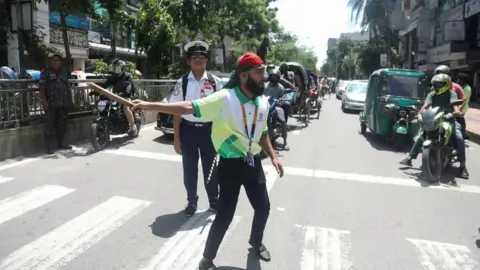 United States Environmental Protection Agency
United States Environmental Protection Agency“We are happy that we have abolished the dictatorship. We have won our freedom and sovereignty.”
He is confident that the person appointed as interim leader, Nobel laureate Muhammed Yunus, will be able to form a government in a few months “with the help of students, lawyers and the general public”.
“The future of Bangladesh lies in the hands of student leaders. God willing, everything will be fine,” said the 22-year-old.
Mahamudul Hassan, 21, is pursuing a similar course.
“I want democracy so that people from all walks of life can enjoy equal opportunity, equal rights.” He hopes to have “a leader who can make those things happen.”
Mr Yunus was appointed to the post by Bangladesh’s president late on Tuesday, fulfilling a key demand of student protesters who said they would not accept a military-led government. He is now returning from surgery in France and could be sworn in on Thursday.
“I look forward to returning home to see how the situation is and how we can organize ourselves to get out of the current difficult situation,” he told reporters on Wednesday at Charles de Gaulle airport in Paris, where he was scheduled to fly to Dhaka.
Following reports of looting and revenge attacks on Sheikh Hasina’s supporters, he called on people to refrain from all forms of violence, warning that if they did not, everything would be at risk of being destroyed.
In a speech to the nation on Wednesday, the army chief said he was sure Mr Yunus “will be able to take us through a beautiful democratic process and we will benefit from this”.
How things will turn out remains to be seen – but in terms of traffic management, the students appear to be doing well.
The BBC found the programme running much more smoothly than when we visited in January to witness the controversial election, boycotted by the main opposition, which saw Sheikh Hasina’s Awami League win a fourth term in power.
Everything seemed normal as we saw a group of men hauling large metal bars to carry out a construction project.
“The traffic system is better now. The students are managing it well. It’s better than when the police were here,” said Mohammed Shwapan, a driver in Dhaka for 24 years. “Today it’s more crowded than yesterday.”
He supported the choice of an interim leader.
“Because Mr. Yunus is famous all over the world, he can minimize any risk of economic collapse.
“I am concerned about the international debt, how Bangladesh will manage the payments. That is why I think he can do a good job.”
The challenges ahead are huge, and not just economic. There are many wounds to heal after Sheikh Hasina’s 15-year rule ends on Monday.
Her government is credited with economic reforms that have improved living standards for many in Bangladesh. But she has also been accused of serious human rights abuses, including extrajudicial killings and enforced disappearances.
Many people have stories to tell about what their families have been through.
On the plane to Dhaka, I tried to close my eyes for a few minutes. When I opened them, I saw a handwritten note on a sick bag found in the back pocket of the seat in front of me.
It was written that his father was killed by Sheikh Hasina and his brother was kidnapped. He has been in self-imposed exile for the past eight years for the safety of his wife and children.
Now, he is returning to what he calls “a free country” to visit his father’s grave, the note said.


